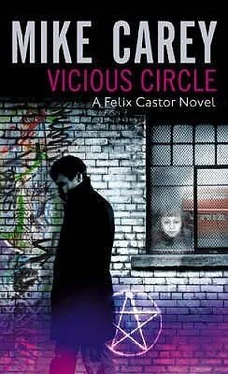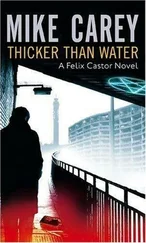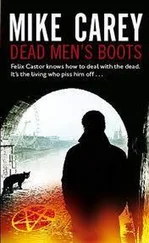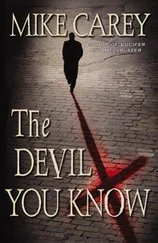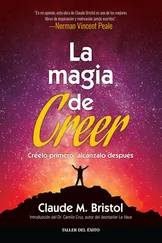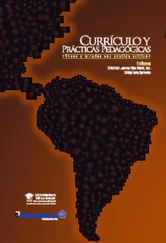Well, not quite in their stride: I noticed that Po’s claws were gouging into the plastic anti-slip slats on the floor, reducing them to ribboned ruin. His head was bowed, his breath coming in quick, barking grunts. Zucker was leaning against the gurney, his eyes clenched shut, a sheen of sweat on his pale face.
This would have been a good time to launch a daring escape, but the guy who’d introduced himself as Sallis was just as aware of that as I was. He jabbed the gun in between my shoulder blades and held it there until Zucker got his groove back. Like it or not, I was along for the whole ride.
A few moments later we dipped very sharply, with a harsh shudder as the suspension didn’t quite manage to take the strain, bumped over a series of badly fitted steel grids that shrieked under our wheels like a cageful of rats, and rolled to a halt. Zucker threw the doors open. He stepped down first, and the solid thud as his feet hit the ground outside had a strange echo to it. The darkness was impenetrable. Po gathered himself up and rolled out into the night with eerie, silent grace, then swivelled to stare back in at me. Sallis waved the gun, indicating that it was my turn next.
I climbed down from the back of the ambulance and looked around. I still didn’t have enough night vision to see what kind of somewhere I was standing in, but again there was that echo, from somewhere close at hand. Every scrape of foot on concrete, every pop and twang from the ambulance’s engine, cooling rapidly in the night chill, had its attentive twin rushing out of the dark to join it.
A rectangle of grimy-yellow light opened in front of us, and with its help I saw what I’d already guessed: we were inside, in a sepulchral space that was enormous in extent but as low-ceilinged as a church catacomb. White lines on the ground, parallel and evenly spaced, gave the game away still further: not a church, but an underground car park. ‘Get him inside,’ said a cold voice, which was so dead and flat that it scarcely stirred the echoes at all. A hand – Sallis’s, presumably – gripped my shoulder from behind and I was pushed brusquely forward, Zucker and Po falling in on either side of me.
We stepped through the doorway into a concrete stairwell. Father Gwillam closed the door, which was a fire door, and pushed the bar back into place with a small grunt of effort. Then he turned to me.
‘Good to see you again, Castor,’ he murmured. ‘On the side of the angels at last.’
‘Colour me undecided,’ I suggested.
Gwillam smiled – a brief flicker of expression that couldn’t take root in the affectless terrain of his face – and nodded. ‘Everything’s set up upstairs,’ he said, to the company in general: it wasn’t a comment I liked very much, but my personal honour guard closed in on me as Gwillam led the way up the stairs, so I didn’t have much choice about whether or not I followed.
I was looking for clues as to where we were. Close to the Thames, I knew, but where had we crossed? Not as far east as Rotherhithe, surely? In any case, I was pretty sure I’d have heard the engine noise change if we’d come through the tunnel. But maybe we’d gone west. There was no way to be sure: at a rough guess, we could be anywhere between Wapping and Kew.
But as we came out of the stairwell onto a wide blue-carpeted corridor with a gentle incline, bells began to chime. I’d been here before, some time in the long-ago. I experienced a flash of déjà vu that included the insanely staring eyes of Nosferatu, and I almost had it. A cinema? Had the Anathemata found one of London’s decommissioned dream houses and moved in, as Nicky had done over in Walthamstow? That would be a pretty sick irony.
But no. As it turned out, they’d gone one better than that. Gwillam threw a door open and flicked a light switch. Strip lights flickered in sequence along a wall as long as a football field. A black wall: black floor, too, scarred with the scuff marks of innumerable feet. Up ahead of me, something that looked a little like a tyrannosaurus rex made of glass and black steel reared itself up to about twice my height. But it wasn’t a T-rex: it was a Zeiss projector.
‘Son of a bitch!’ I said, impressed in spite of myself as the penny dropped.
‘That’s the sort of language Po doesn’t appreciate all that much,’ Gwillam murmured, raising the disturbing possibility that he might actually have a sense of humour.
He walked around the Zeiss projector, and I followed: or, rather, I was herded. The vast expanse of floor on the far side was mostly empty, except for a ghost-pattern of unbleached areas on the carpet where other objects had once stood: display stands, partition walls, ancient cine-cameras, life-sized dioramas from great movies. The Anathemata had colonised one small area: there were a couple of guys working on laptop terminals at desks that were surrounded by thick, overlaid loops of electric cable like barbed-wire entanglements. Another couple of guys were talking on mobile phones, one of them tracing a line with his finger on an ops board – a huge map of London pinned to the wall, like I’d only ever seen in 1970s cop shows. That was pretty much it: that, and a whole lot of empty space stretching away into the middle distance.
‘You should move somewhere smaller, now that the kids have grown up,’ I commented, trying for a nonchalant tone that I think I missed by a mile or so. ‘You’re probably paying more rent than you need to.’
Gwillam smiled thinly. He was watching my face, taking a clinical interest in my reaction. ‘Who mentioned rent? They left the key under the mat, and we let ourselves in. I’m assuming you know what this used to be, before it died?’
‘Sure,’ I said. ‘I know.’
But Gwillam wanted to give me the punchline, and he wasn’t going to be deterred. ‘It was the Museum of the Moving Image.’
Just the words conjured up a little squall of memories. The Museum had been part of the South Bank complex, like the National Theatre and the Festival Hall – but it had been added on after all the rest were built, because film was the scruffy little johnny-come-lately of the art world and had to make space for itself at the table with its elbows. I’d only been here once before in my life – on a school outing when I’d been thirteen. All the way from Liverpool on the train, with four stuffed-pork-roll sandwiches and a can of Vimto to see me through the day. I’d pretended to think it was shit, because that was what all my mates were saying, but secretly I reckoned the low-tech horror of the magic-lantern shows was the dog’s bollocks, and I sneaked back to watch the X-wings-versus-tie-fighters battle sequence from Star Wars twice over.
Now it was just an empty warehouse.
‘They closed the place down some time in the late 1990s,’ said Gwillam absently. ‘Took the exhibition on the road. It’s meant to be opening again in three years or so. In the meantime . . . it’s really handy for the West End. Sit down, Castor.’
I hadn’t even seen the chair. It was sitting in a patch of shadow just on the further side of the ops board where two of the strip lights had failed to come on. A coil of rope and a doctor’s little black bag lay on the floor beside it. There was a table, too: a small, round coffee table with a stained formica top which looked as though it had wandered in here from somewhere else. Gwillam swivelled the chair around to face me.
‘Please,’ he said, in the same deadpan tone.
‘I’d rather stand.’
Gwillam sighed, and pursed his lips in a way that suggested he got a lot of this selfish and hurtful behaviour but never quite got used to it.
‘If you’re standing,’ he pointed out patiently, ‘Zucker and Sallis can’t tie you to the chair.’
Читать дальше
